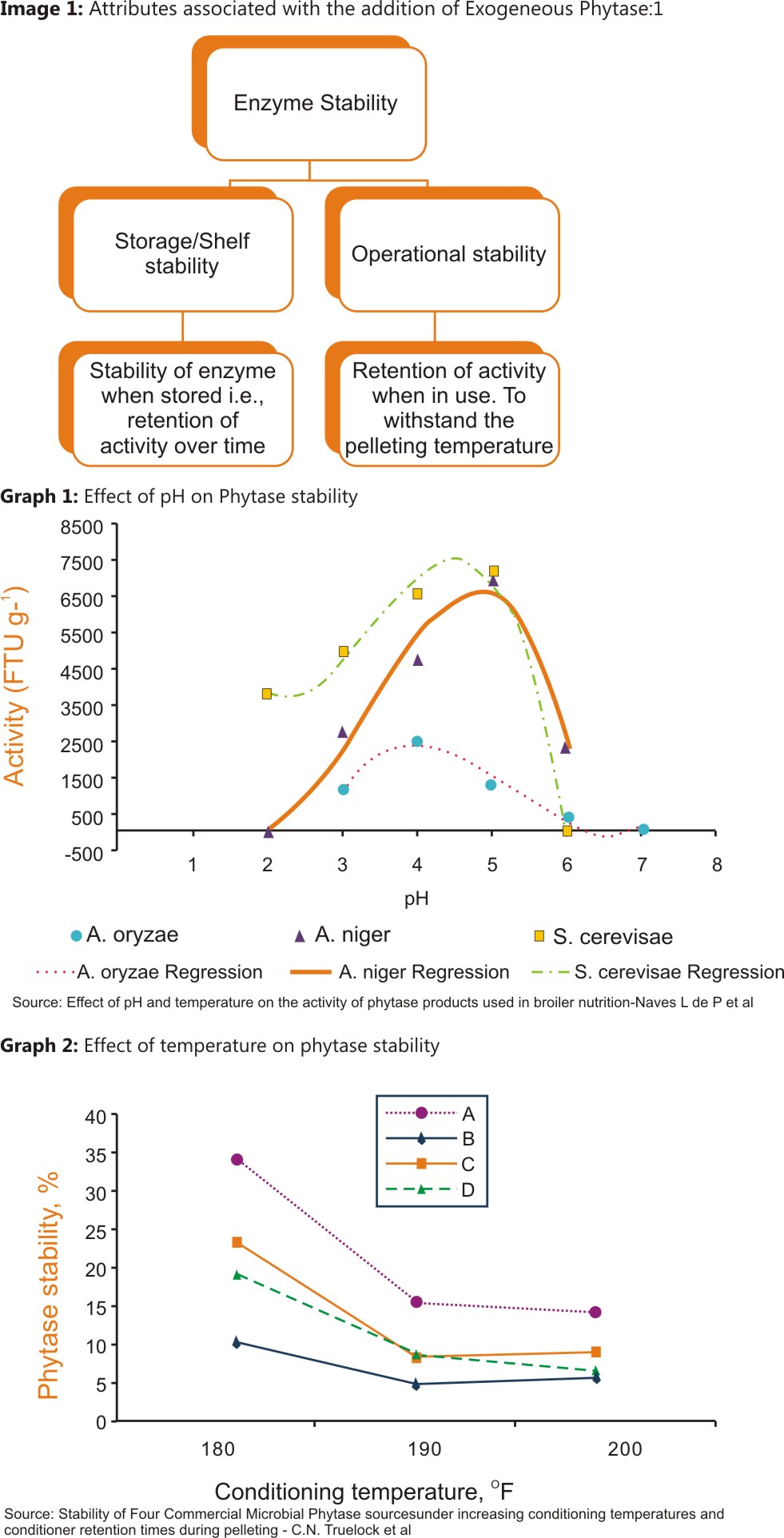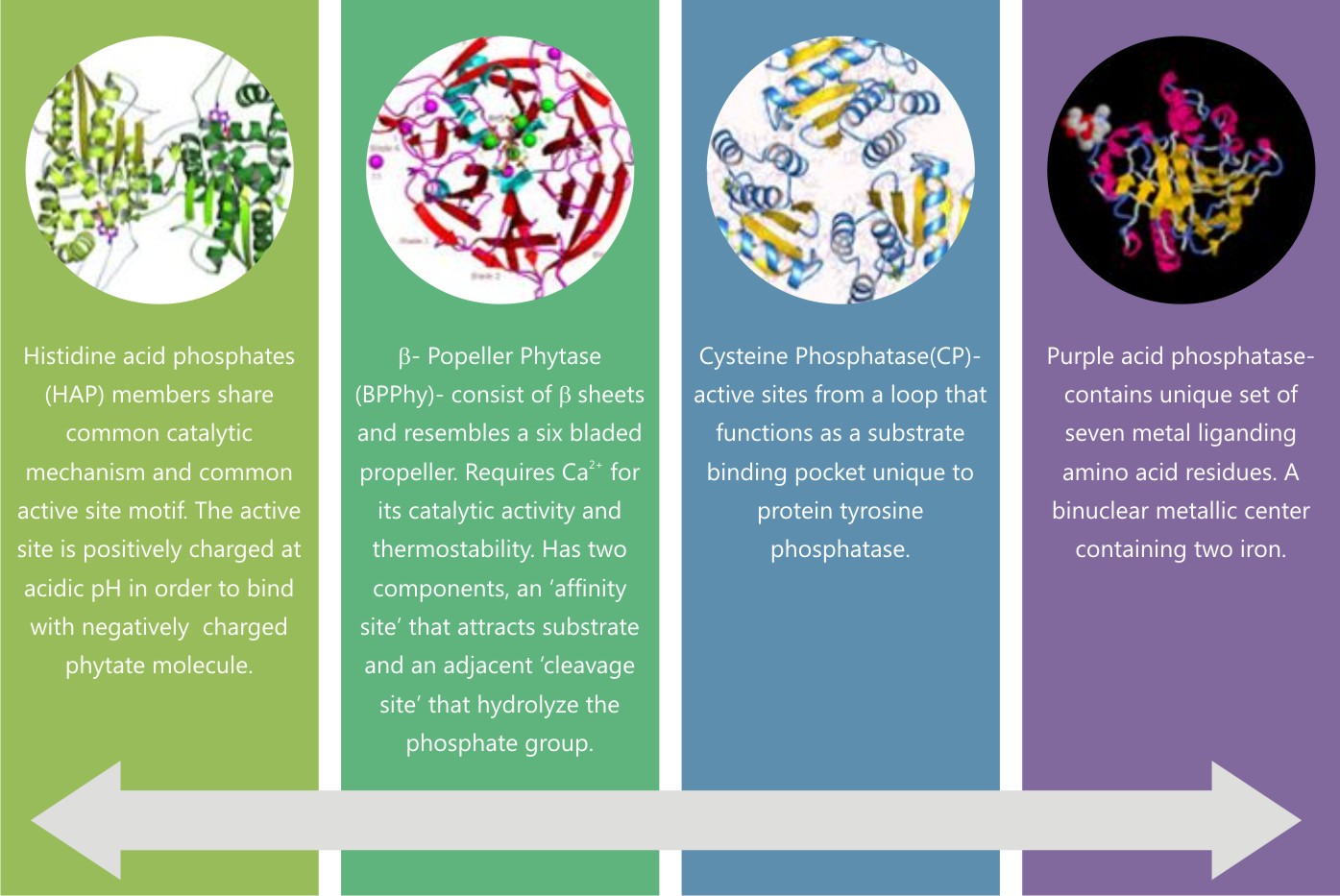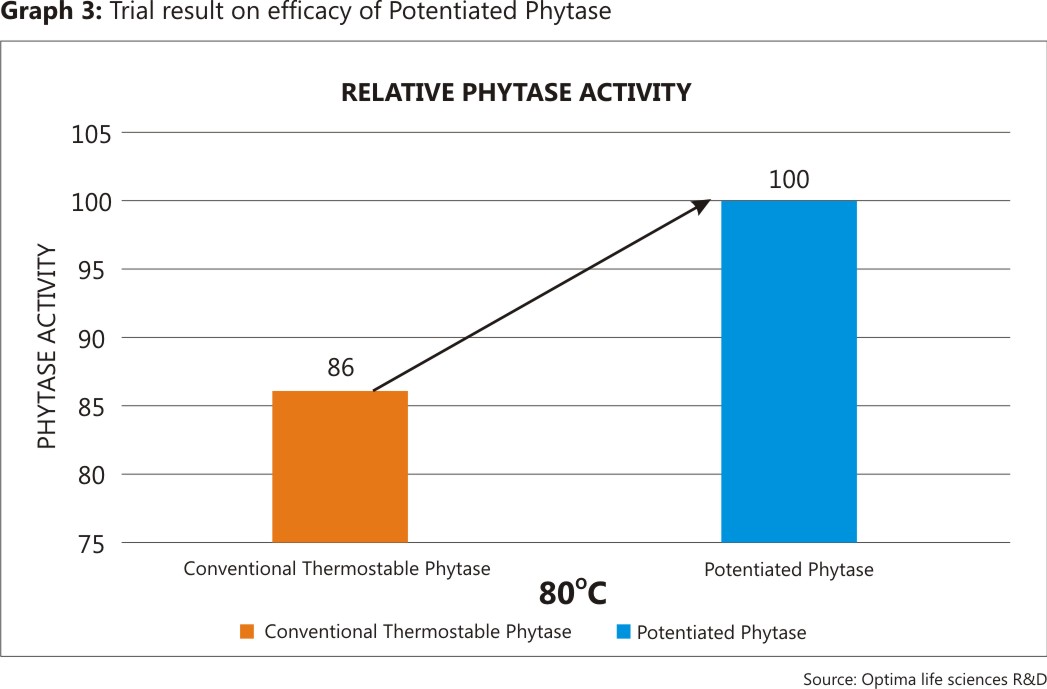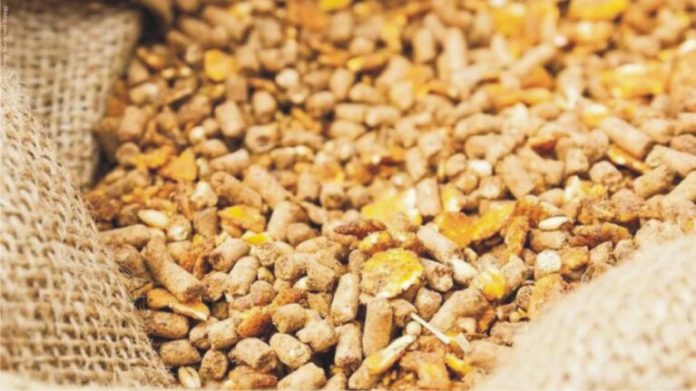Introduction:
Phosphorus is one of the essential minerals for all the living organisms including poultry. Phosphorus being a part of energy currency, plays a critical role in cellular metabolism as well as it is also required in bone formation. Phosphorus is bound to Phytic acid in plants thus doesn’t get avail to poultry. To compensate this, additionally Phosphorus source supplements such as Dicalcium Phosphate is added in the feed. This addition increases the feed cost and decreases the profitability out of poultry production. In addition to this the bound Phosphorus excreted as it is in the environment thus polluting the environment also (Peter.H.Selle et al). Apart from decreasing phosphorus availability, Phytic acid chelates with various divalent, amino acid and decreases their absorption as well. To overcome aforesaid problems, Phytase development and addition has been a very innovative approach to bring the best out of nutrition and to reduce the cost of production. Phytase catalyses the hydrolysis of Phytate (present in feed) in stepwise manner and releases bound Phosphorus and inositol, thus reducing the cost of additional phosphorus in diet. Solely the addition of phytase wouldn’t reduce the cost or would increase the efficiency of production. Various attributes that are associated with the stability of enzymes should also be considered to meet out the actual benefit out of the addition of Phytase enzyme. In this article stability parameters linked with phytase and their importance is discussed.
Need of Phytase addition:
. Augmenting Phosphorus release


. Lowering the feed cost
To compensate the deficiency of Phosphorus, additional phosphorus is added in the diet in the form of Dicalcium Phosphate that results in increase feed cost. Phytase addition somewhere reduces the feed cost by increasing the availability of Phosphorus and decreasing the requirement of addition of Phosphorus source in the feed.
. Diminishing the environmental pollution
Phosphorus being in bound form, passes in the excreta as such, thus being deposited in the natural resources. Extraction of phosphorus leads to depletion of non-renewable resources. Phytase addition solved this problem to some extent.
Attributes associated with the addition of Exogeneous Phytase:
In general, enzyme being a biocatalyst should be stable to show its complete activity and to fulfil the purpose it is specifically manufactured for (as shown in image 1).
. Ideal feature of Phytase when in operation
o Thermostability- to withstand high pelleting temperature.
o Good gastric tolerance and stability to resist birds own enzymes.
o Stability at low pH.
o High rate and extent of Phytate breakdown- to sustain its activity even at low phytate concentration.


Structural aspect of Phytase- At present there are 4 classes of phytase that are believed to hydrolyse phytate.


Broiler ration are typically pelleted to promote improved broiler performance but high pelleting temperature can inactivate the conventional phytase enzyme. Feed pelleting process involves temperature around and even in excess of 80°C, under this condition the common phytase enzyme gets denatured and loose enzymatic activity. Limitation to most commercially available phytase is that they are inactivated when pelleted above 75°C-80°C. Moreover, lower than the desired activity of added phytase in feed can have a visible negative impact on lameness (weak bones and egg shell) in poultry. Therefore, it becomes imperative to provide special attention to heat stability of phytase.
Phytase with improved thermostability would meet the purpose of inclusion of this enzyme in poultry diet. For a phytase additive to be optimized, it must also be thermally stable.
Potentiated Phytase:
In order to increase the potential benefit of phytase in poultry diet, it becomes mandatory to increase the heat stability of phytase. Potentiated phytase is that phytase where its activity is potentiated by a special technology which shall provide protection against high temperature that occur during pelleting and conditioning.
Highly thermostable phytase- an enzyme by Optima Life sciences being a potentiated phytase, stands out to be an indispensable product which is based on a special technology that is Thermo-protection technology. Using this technique enzyme productivity and shelf stability is increased.




Poultry sector being one of the developed sectors is moving towards continuous change. To bloom the sector further, it is necessary to bring the nutritional parameter also in track. Discovery of exogenous enzymes was a boon to the grooming industry. Economic justification for producers to use Phytase is clear and its importance for feed manufactures is proven with heat and storage stability of enzyme. Addition of thermostable and storage stable phytase would bring the best out of the discovery of that enzyme. Therefore, the profitability out of addition of exogenous enzyme now relies on selection of phytase which is thermostable and storage stable.
References are available upon request.
by Dr Pooja Rawal, Dr Dibyendu Dey, Mr Vinay Kulkarni, Dr C.V. Chandrasekaran, Optima Life Sciences













